The National Institute for Agricultural Research and the International Center for Agricultural Research in the Dry Areas Unveil Their Latest Agricultural Innovations in Mershouch
The National Institute for Agricultural Research (INRA) and the International Center for Agricultural Research in the Dry Areas (ICARDA) organized an informative field day this Wednesday, May 28, at the Mershouch experimental station, located in the Khemisset province.
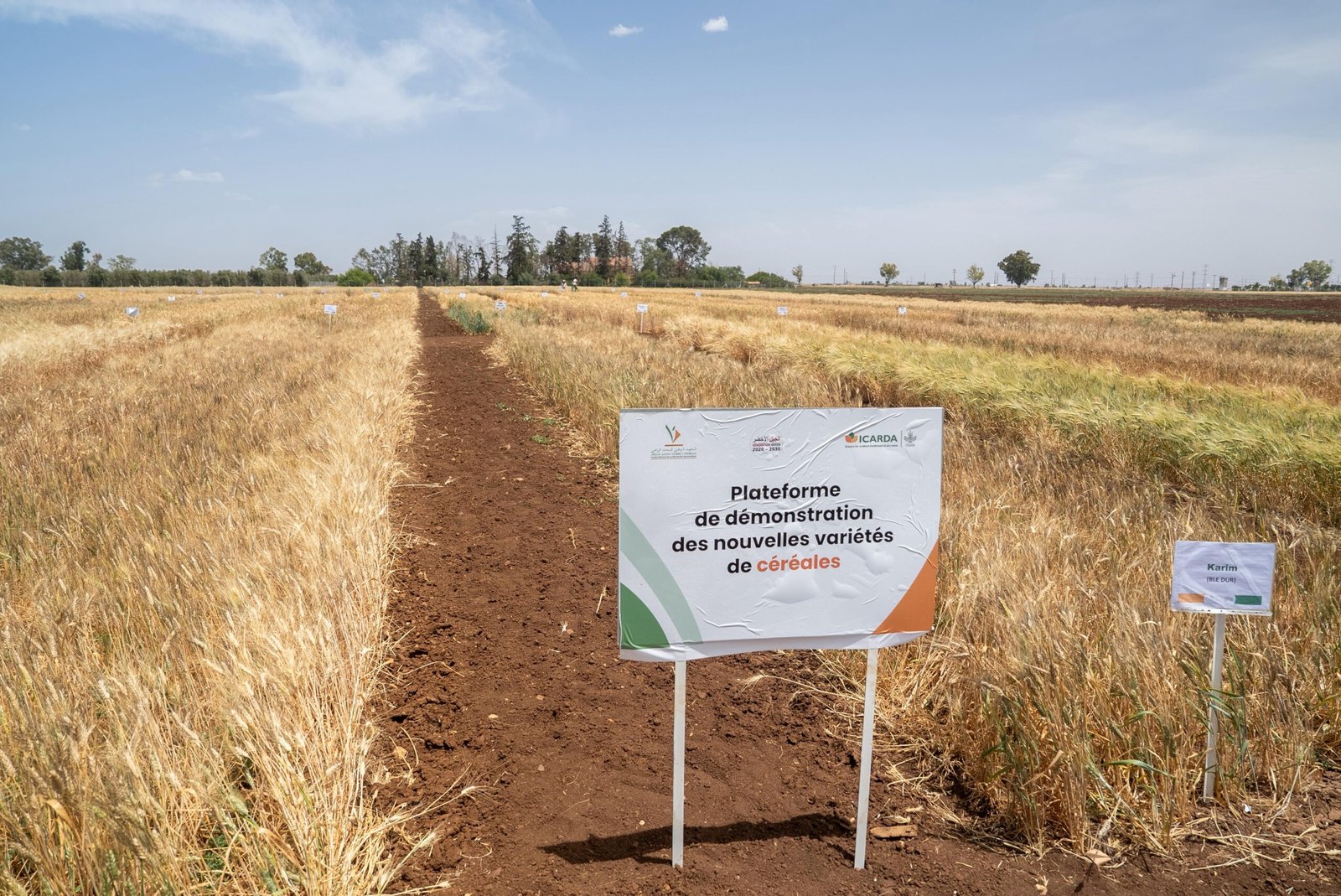
Held under the theme “Cooperation between INRA and ICARDA in the Service of Climate-Resilient and Environmentally Efficient Agriculture”, this event was part of the implementation of the “Green Generation 2020–2030” strategy. It took place in the presence of the Minister of Agriculture, Maritime Fisheries, Rural Development, and Water and Forests, Ahmed Bouri, alongside several stakeholders from institutional, professional, and farming communities.
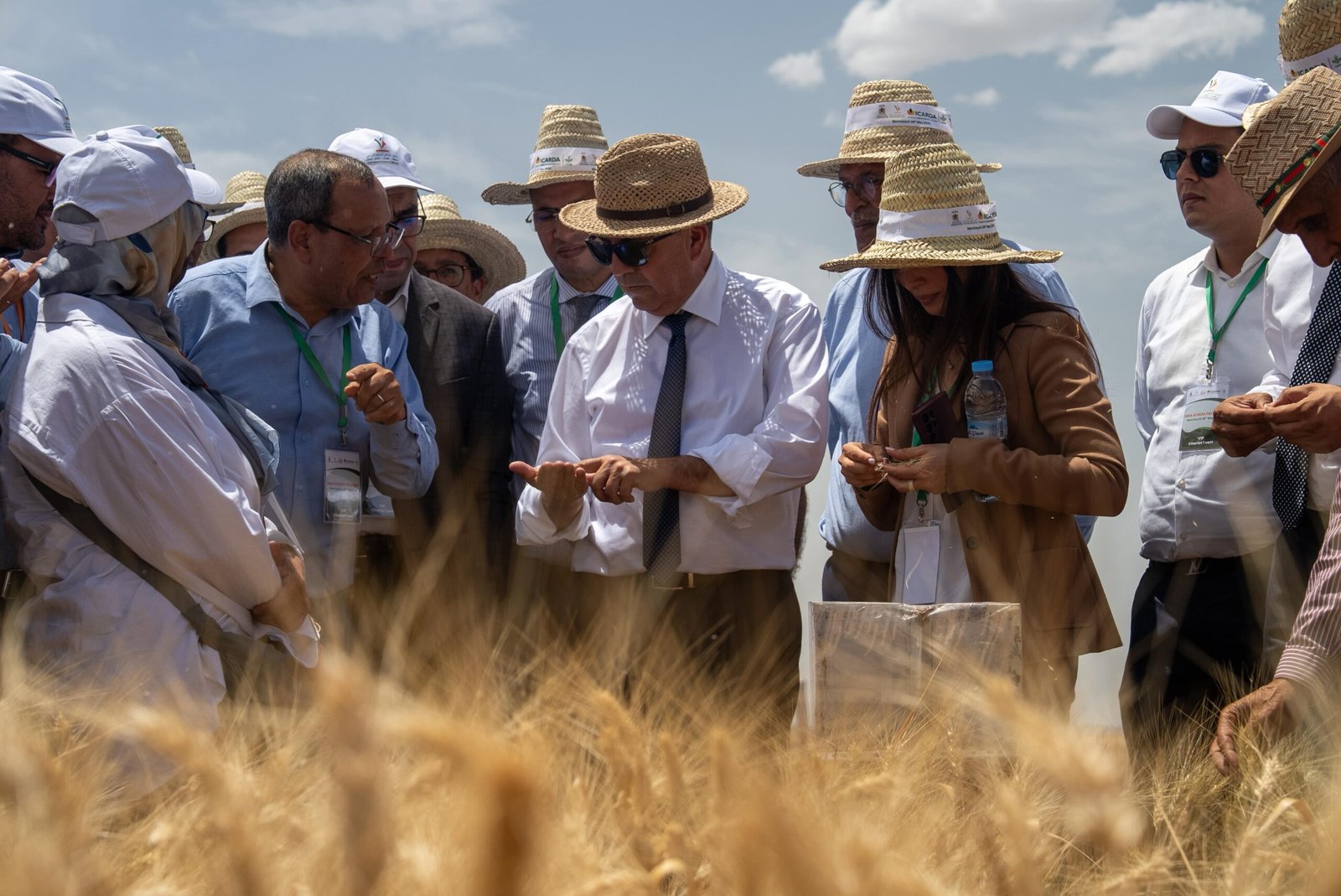
This field day provided an opportunity to highlight the contribution of scientific research in addressing Morocco’s structural water deficit, which has persisted for the past seven years in a context of severe drought, with only 200 mm of rainfall recorded at the measurement station.
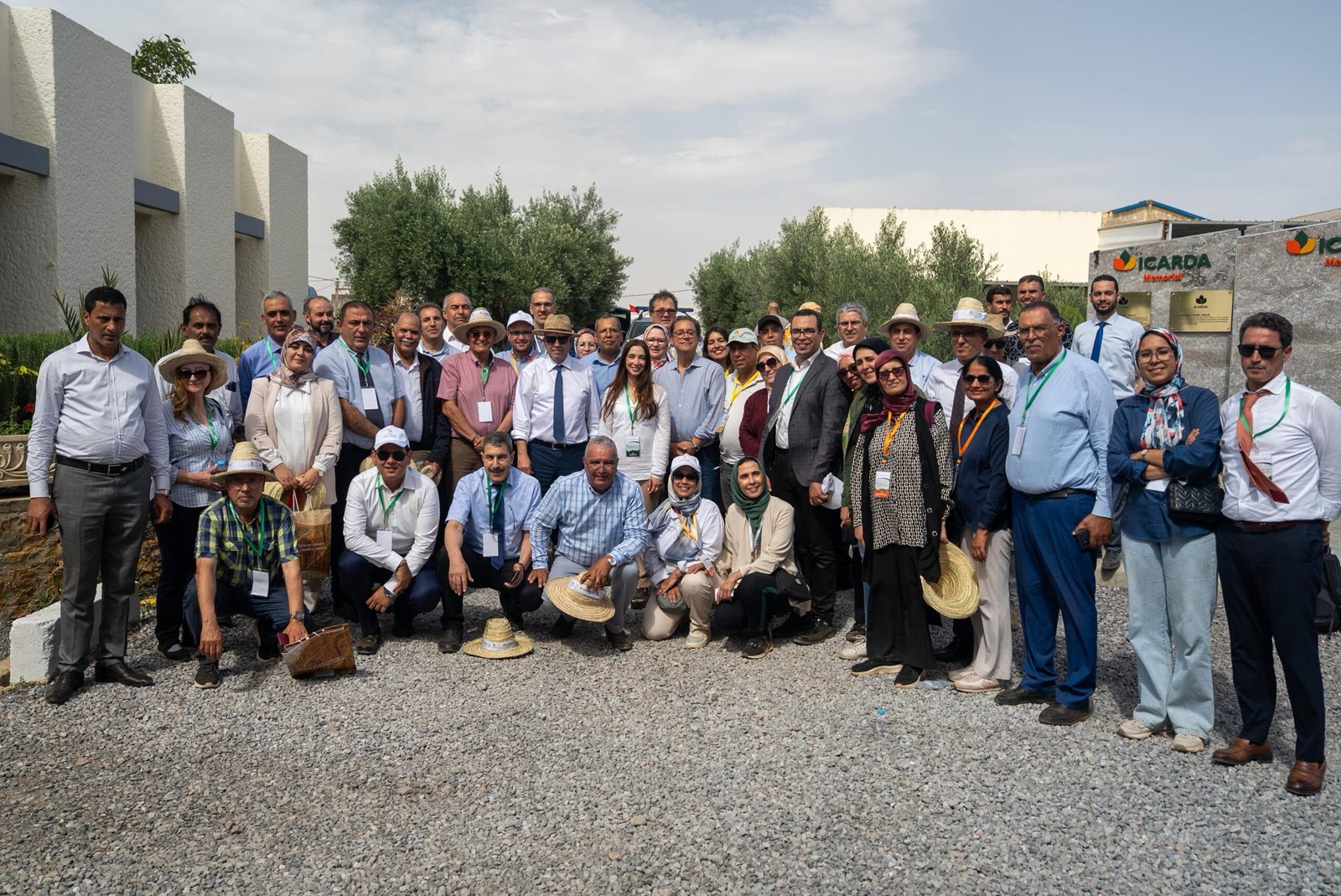
The event was also marked by the presentation of new varieties of cereals and food and forage legumes, in addition to breeding programs and seed multiplication initiatives carried out at the site.
It is worth noting that successful models of direct seeding and supplemental irrigation experiments were presented to Mr. El Bouari. These pioneering trials are being carried out by a team of specialized researchers from the National Institute of Agricultural Research, in partnership with the International Center for Agricultural Research in the Dry Areas (ICARDA). They represent the fruit of advanced scientific collaboration aimed at promoting sustainable agricultural practices and achieving better yields in light of current climate challenges.
In a press statement, INRA Director Lamia Laghouati emphasized that this day serves as a true bridge of communication between farmers, researchers, and stakeholders involved in seed production.
She noted that more than 72 varieties of cereals and legumes, specifically designed to cope with climate change and water stress conditions, were presented.
When discussing agricultural techniques, she stressed the importance of water-saving methods such as supplemental irrigation and direct seeding, noting that these techniques can boost productivity by up to 50%.
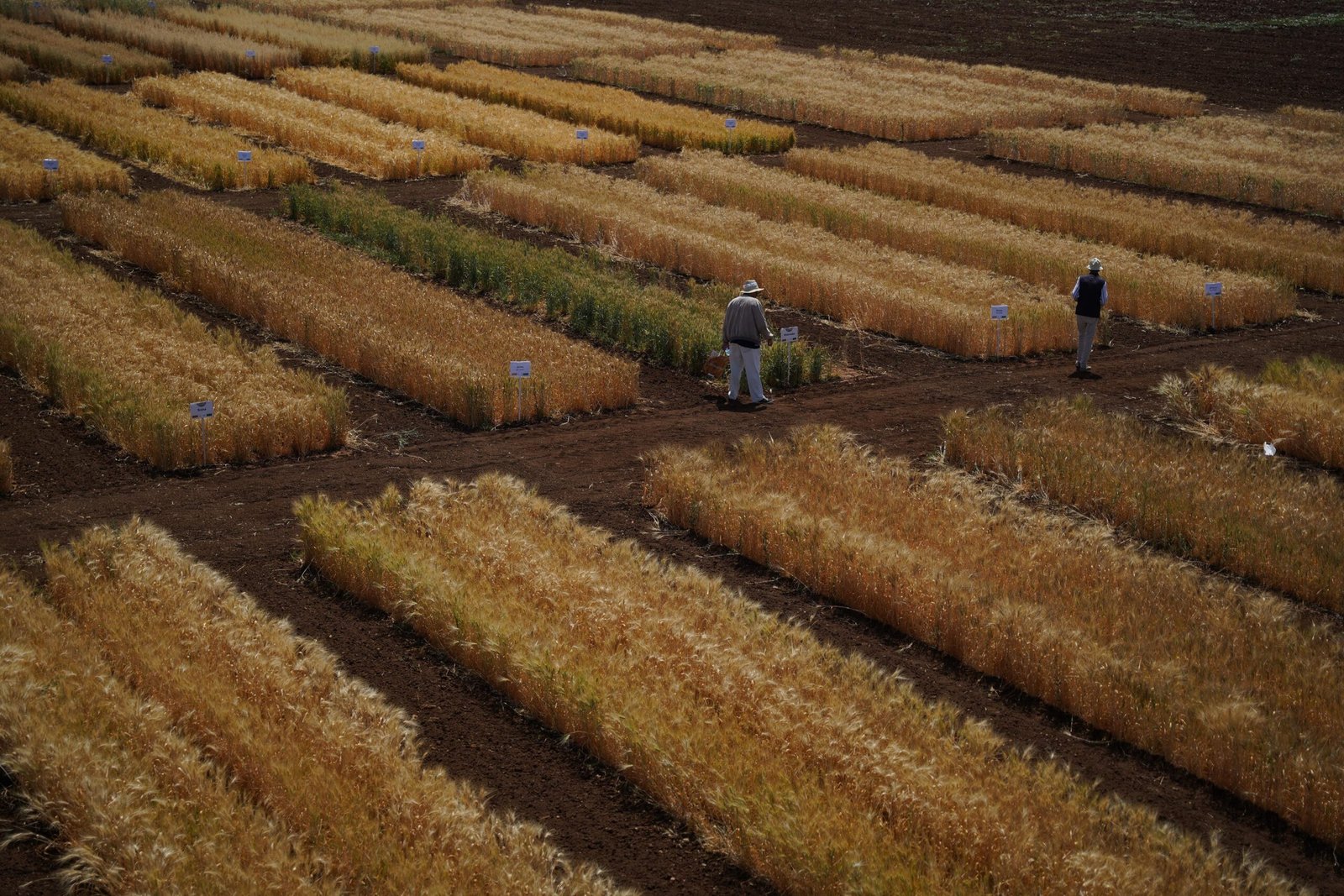
For his part, Michael Baum, Director of the Biodiversity and Crop Improvement Program at ICARDA, explained that the dynamic development of new varieties, direct seeding techniques, irrigation solutions, and other agricultural innovations has been underway since 2013, with the goal of expanding their adoption across Morocco.
Baum also underlined the significance of these innovations, recalling that Morocco has approximately 5 million hectares dedicated to rainfed agriculture.
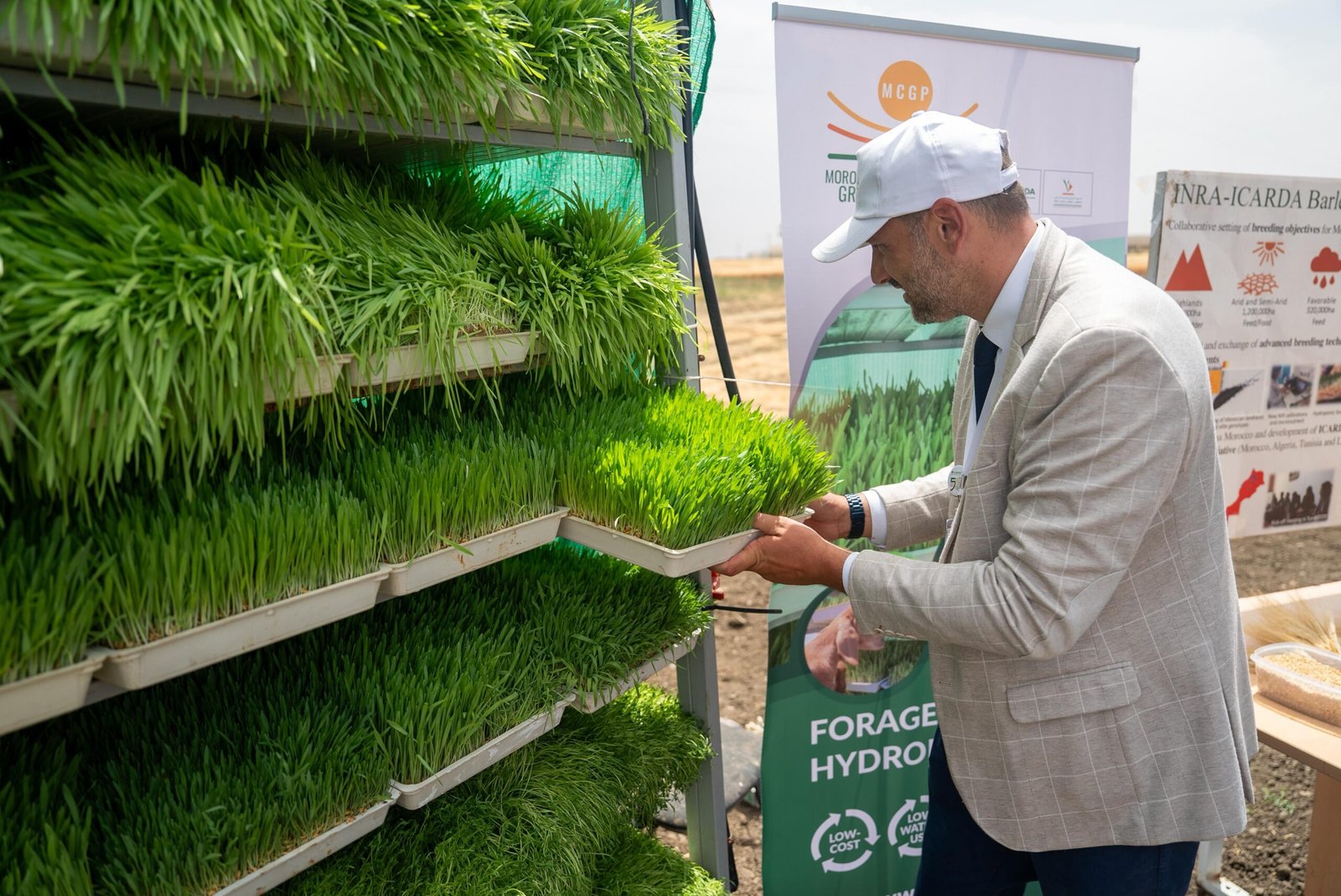
In this context, he stated that ICARDA, in partnership with INRA, is working to develop and test resilient agricultural technologies, tailored specifically for the conditions of rainfed farming and the challenges associated with climate change.
The purpose of this event was to enable stakeholders to observe the progress made in genetic improvement, and to learn about the agronomic, physiological, and technological qualities of the newly developed varieties, in order to encourage their adoption by farmers and seed marketing companies.
It is worth noting that the Mershouch experimental station, established in 1965 over an area of 550 hectares, plays a key role in testing varieties of autumn cereals, food legumes, and forage crops.
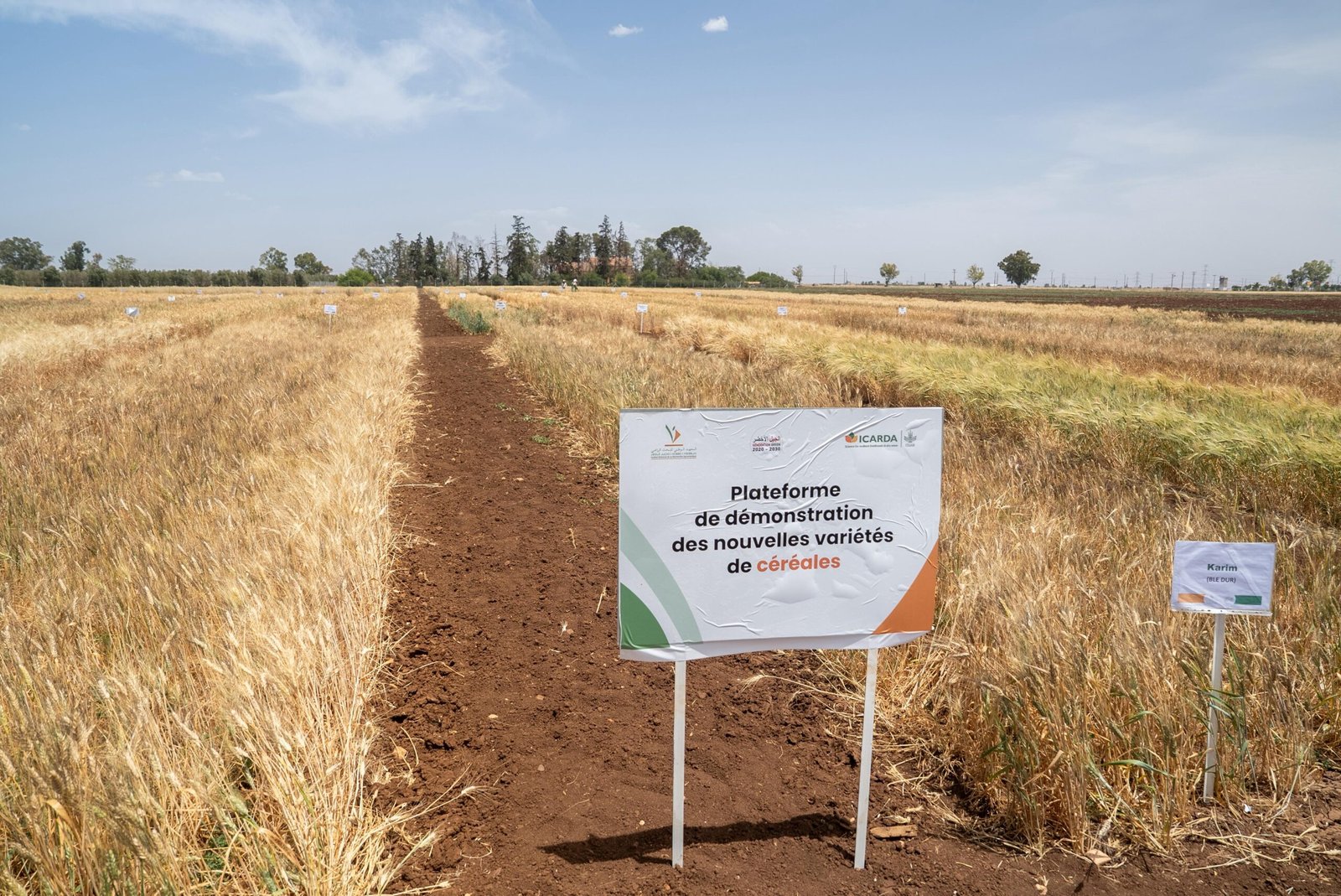
As a reminder, within the framework of the “Green Generation 2020–2030” agricultural strategy, INRA is expected to develop between 30 and 50 new high-performance varieties covering all agricultural production chains, while supporting the transition to 1 million hectares of direct seeding. These efforts aim to increase the productivity of major crops by at least 50%, enhance the competitiveness of agricultural value chains, and improve the sector’s adaptation and resilience to climate change, all while ensuring the sustainable management of natural resources.
#almouhitalfilahi


